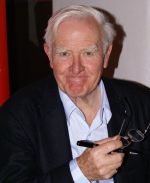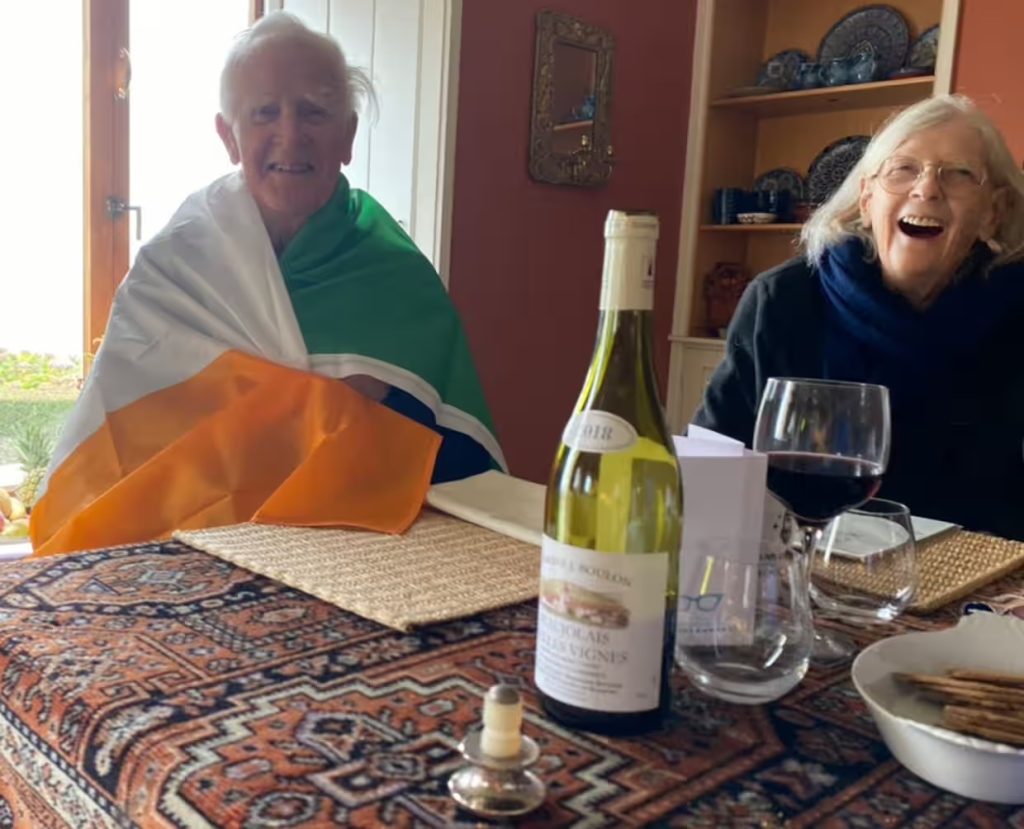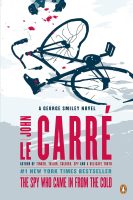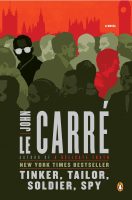John le Carré was born David Cornwell in Poole, England in 1931. His father, known as Ronnie, was a violent con man who landed in prisons across the globe. Olive, David’s mother, so despised him that she packed her bag and slipped away in the middle of the night. She went into hiding leaving David, then only five years old, and didn’t return to her son’s life for another 16 years. His wife’s summary exit bothered Ronnie not a bit, he had lots of other women and besides, he was too busy with his jobs—scamming and grifting. In later years Google listed his profession simply as “Associate of the Kray brothers.”
But Ronnie was as big a snob as he was a scoundrel and insisted his son attend the best schools, making brazen attempts to pay the tuition with bags of prunes, nylons, or Benzedrine inhalers. He was a textbook sociopath with “toff” pretensions or as David put it, “He was on the wanted list for fraud at the same time he was sporting a grey topper in the owners’ enclosure at Ascot.” The fodder provided by the father, his deception, double-dealing, and “the extraordinary, the insatiable criminality of Ronnie,” provided much color to his son’s future writing.
David stayed in the rarified world of British education, saying of his time at Oxford that he “filched the manners and lifestyles of my peers and betters.” It worked: David Cromwell, son of a jailbird, became a proper Englishman. He was recruited into British Service, MI5, while still a teenager at University. MI5 was in charge of domestic security and there he interrogated and supervised agents until he was transferred to MI6, the branch which focused on foreign security. Surrounded by such rich material and characters, he began to write novels about his secret job believing novel writing and spying to be symbiotic, “Both call for a ready eye for human transgression and the many routes to betrayal.”
Sometime around 1961, David Cornwall, needing a nom de plume for his first novel, became John le Carré. He was always evasive about the inspiration for the pseudonym, but it’s been noted that “le Carré” is French for “the square.” “The Square” perfectly describes his greatest creation, George Smiley—the dumpy, frumpy cuckold devoted to German poetry.
Smiley, who appears in nine of le Carré novels, was the antithesis of Ian Fleming’s amoral, martini-swilling James Bond, a character le Carré likened to a “gangster.” Fleming, his former co-worker at MI6, wrote glitzy thrillers while le Carré wrote literature, the stuff of intricate plots and morally conflicted spies stuck in the miasma of espionage and secrets. Often underestimated as simply a spy writer or a Cold War chronicler, he transcended the genre, bringing spy fiction into the world of literature. When he passed in 2020, he was considered one of the greatest English novelists of his generation.
His third novel, The Spy Who Came In from the Cold, published in 1963, made him famous…and rich. His life had changed forever: he found himself in New York having lunch with Elizabeth Taylor and Richard Burton and pursued by Alfred Hitchcock who wanted to direct his work. After his international success, he stayed at MI6 but his career as an intelligence officer was over when the infamous spy, Kim Philby, blew his cover, an experience that was the storyline of Tinker, Tailor, Soldier, Spy, and explained his later fixation on betrayal. Beginning in 1965, he wrote round the clock, turning out bestsellers that made their way into movies and television.
But even as his fame spread, he was still enlisted to get his father out of prisons all over the globe, pay his bail, and pay his debts. The old reprobate managed to bilk, simultaneously, his mother and mother-in-law. It was an event le Carré wrote about in an essay, “I still remember my grandmother heartbroken, wringing her hands and asking God ‘Why, why?’ in her Irish brogue…” Ronnie had the cheek to autograph his son’s books with “Signed by the author’s father.” Yet, le Carré was forgiving and this may be the most splendid thing about him. He began life abandoned by his mother then forced to endure a blackguard for a father but still went on to be devoted to his four sons and loving husband to his longtime wife, Jane.
In his later years, he marched against the Iraq War commenting, “How Bush and his junta succeeded in deflecting America’s anger from bin Laden to Saddam Hussein is one of the greatest conjuring tricks in history.” He publicly deplored Margaret Thatcher, her conservatism, and draconian policies, but it was Boris Johnson and Brexit that proved too much for le Carré. When Brexit was being debated, he said, “I’m a European through and through, and the rats have taken over the ship, it’s breaking my heart.” He saw Brexit as phony nationalism that demonized the rest of Europe. Boris Johnson, he believed, has “taken his place beside the two other accomplished liars of our time: Donald Trump and Vladimir Putin.”

But, in the end, he was saved: his maternal grandmother was from Rosscarbery, Co. Cork making Ireland his literal motherland. When the town archivist discovered his roots, she embraced him saying “Welcome Home.” Le Carré’s son was present and recalled, “It was vastly moving for him, a huge emotional shift, an awareness of his history and self which had genuinely eluded him his whole life.” A proper Englishman no more, he became a citizen of Ireland and the EU, Brexit be damned.
His son Nick took the feature picture of le Carré (above) two months before he died. The author is jubilant wrapped in a flag—the green, white, and orange tricolor of the country that was now his, Ireland. He’s laughing heartily with his wife Jane, an empty bottle of Beaujolais before them. As Nick said, “He went out swinging, he died an Irishman.”




Leave a Reply